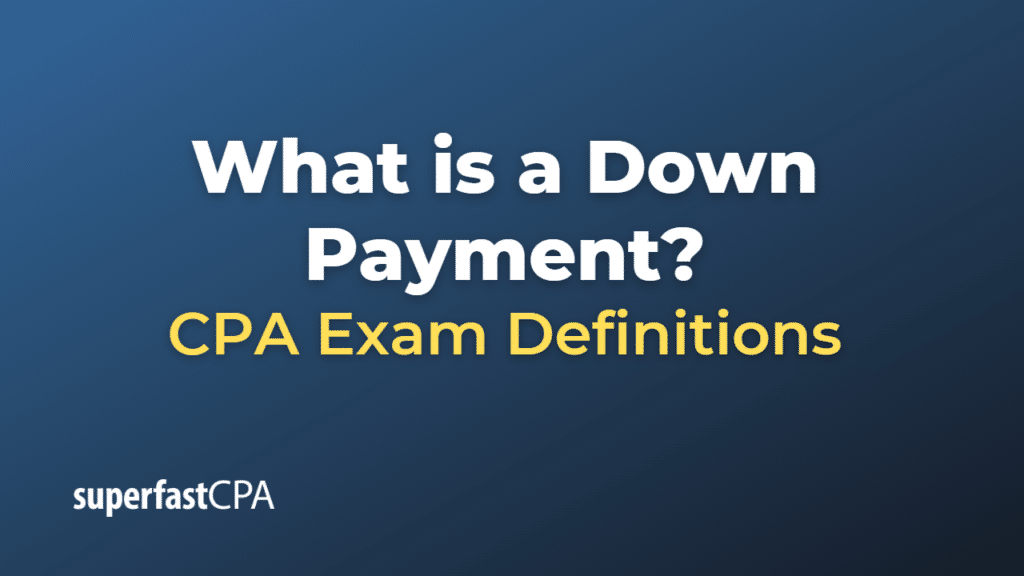Down Payment
A down payment is an upfront payment made when large purchases are financed, such as a home or a car. It’s typically expressed as a percentage of the total purchase price. The down payment reduces the amount of money that needs to be borrowed to complete the purchase, so it lowers the size of the monthly payments and the amount of interest paid over time.
For example, when purchasing a home, the down payment is part of the total cost of the house that the buyer pays upfront, with the rest of the cost financed through a mortgage loan. If a house costs $200,000 and the buyer makes a 20% down payment, the down payment would be $40,000. The buyer would then take out a mortgage for the remaining cost of the house, which in this case would be $160,000.
Down payments are important because they reduce the lender’s risk and show that the borrower has a financial investment in the purchase. The size of the down payment can influence the interest rate offered by the lender, the need for mortgage insurance, and other aspects of the loan terms.
Example of a Down Payment
Here’s an example of how a down payment works in the context of buying a house:
Let’s say you’re planning to buy a house that costs $500,000. If you were to finance the entire purchase price with a mortgage, you would need to borrow the full $500,000. However, most lenders require a down payment.
Typically, lenders might ask for a down payment of 20% of the purchase price. In this case, 20% of $500,000 is $100,000. This means you would need to provide $100,000 in cash as a down payment.
After making this down payment, you would then finance the remaining $400,000 ($500,000 – $100,000) with a mortgage loan from the lender. This lowers the total amount you have to borrow and reduces your monthly payments.
Furthermore, by making a 20% down payment, you may avoid having to pay for private mortgage insurance (PMI), which is typically required by lenders when the down payment is less than 20%. PMI is a type of insurance that protects the lender in case the borrower defaults on the mortgage.












